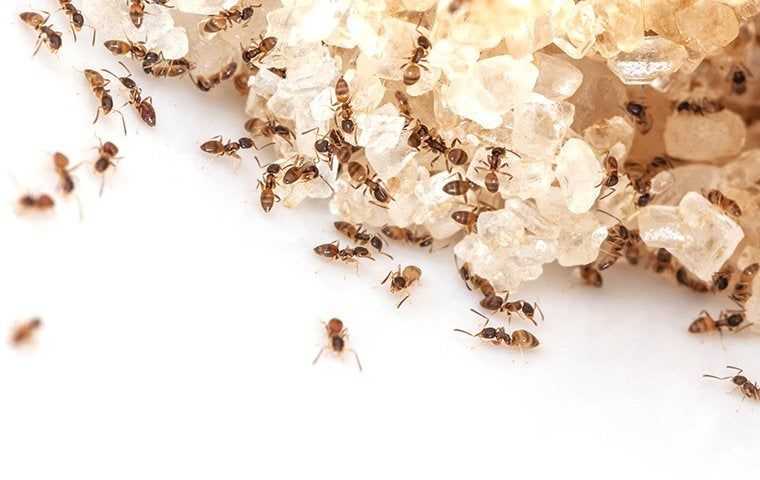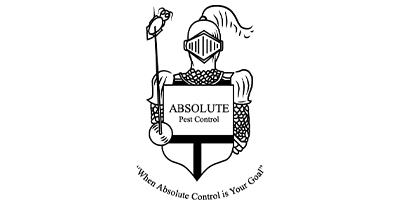Have you had the experience of trying to get a printer to connect to your computer but can't? In desperation, you watch an online video to see if someone has solved the same printer problem. The person goes through the same steps you did but then says, "The trick is to ...." and you realize the answer was there the whole time, but you didn't see the additional step or detail that would fix your problem.
Setting up a computer can be tricky, but it is not the only sticky issue a homeowner faces; removing ants can be troublesome. Because they are tiny, fast, and abundant, eliminating ants in a house can be a hassle. When you witness ants crawling along your baseboards or forming a line that moves from your yard to your garage, you need pest control in Denver from Absolute Pest Control, Inc. For over 35 years, our locally owned and operated company has removed ants from Denver homes. Because we are not a national company, our pest control methods are specific to the Denver area and are not based on orders from headquarters in a different state and climate.
We wrote this article to help you because eliminating ants from your Denver house can be tricky. So, please keep reading to understand why ants are in your home and how to keep them away.
Are You Dealing With An Ant Infestation?

Although most people think they know about ants in Denver because they are seemingly everywhere, they can be confused with other pests like termites. So, let's begin with ant basics.
Ants are insects with six jointed legs, two antennae, compound eyes, and a three-segmented body consisting of a head, thorax, and abdomen. People confuse ants with termites because some have the same coloration and, like flying reproductive termites, some species also produce flying ants. One way to distinguish between ants and termites is their waist. Ants have pinched a midsection, but termites have a long, waistless body. Like termites, flying ants have two sets of wings, but the front wings are longer than the back ones, but both wing pairs on termites are the same length. One final difference is the antennae. Ants have elbowed antennae, but the ones on termites are straight.
Now that we know the difference between ants and termites, and the components of an ant's body, we need to answer the question, how do you tell if you have an ant infestation? These are signs you need ant control:
- Live ants
- Line of ants
- Ant mounds
- Ants on food
- Discarded wings
- Ant swarmers
- Sawdust-looking material
- Pinholes in wood
- Noise in the walls
- Hollow-sounding wood
The indications of ants vary depending on the species, so let's expand on each one.
Of course, the presence of live ants indicates ants are in the house no matter what species. Carpenter, odorous house (or sugar), and pavement ants are common in Denver. Carpenter ants have 5/8-inch black, red, or a combination of black and red bodies. Unlike termites that eat wood, these ants bore smooth tunnels deep into damp, softwoods to create nests. As they chew along the wood grain, they remove the shavings and feces from the tunnels to the nest opening. Piles of sawdust-like materials near pinholes in wood indicate carpenter ant infestations. Because carpenter ants remove wood from the inside out, the timber produces a hollow sound when tapped.
Mature, older carpenter, pavement, and odorous house ants produce winged reproductive male and queen ants. These ants leave the nests after a heavy spring rain and ride air currents searching for suitable nesting locations. Since light attracts swarming ants, you will notice them around outdoor fixtures and windows in the early morning or evening. Once they find a nesting location, they mate, and the males soon die. The queen discards her wings, creates a nest, and lays eggs. The presence of discarded wings on window sills is another indication of an ant infestation in your Denver home.
Most types of ants are subterranean ants that create nests in the soil. Pavement ants build homes underneath the pavement, in cracks, and underneath stones. Inside a house, these ants are in ground-level masonry walls, insulation, and under floors. Odorous house ants, often called sugar ants due to their propensity for honeydew and sweets, build nests under firewood stacks and in the soil; inside the house, they are around water heaters, wall voids, and inside abandoned carpenter ants tunnels. These ants appear after heavy rains. Believe it or not, you can hear ants rustling inside walls if the nests are large and the room is quiet.
Get ant control in your house from Absolute Pest Control, Inc when you see all or some of these indications. We will inspect the interior and exterior of your Denver home for signs of an ant infestation. Our sales service technicians have the training and experience to identify the ant species infesting your property.
Should You Kill Ants You See Inside?
Ants do not have tongues and cannot speak, so they use pheromones to communicate. Some ants, like the odorous house ant, produce a rotten coconut odor when crushed, but in addition to the smell, odorous house ants, and all other ants, release a chemical that alerts nearby ants of danger. Instead of warding away ants, the pheromones attract live ants to investigate. Thus, crushing and squishing ants may increase the number of ants in your house.
Some ant species (Argentine and pharaoh) do not produce winged reproductives but begin new colonies through a process known as budding. When a nest feels threatened, queens mate with reproductive males (known as drones) and leave the nest accompanied by several sterile female workers to find a new place to establish a satellite nest. If the queen cannot leave the colony and eggs or larvae are present, workers will carry them to a new nesting location. When a well-meaning homeowner attacks an ant nest inside the house, they may inadvertently start the budding process, and you may end up with more nests than at the beginning.
Many homeowners think eliminating ants is as simple as purchasing a few ant traps and using store-bought products to solve the ant problem. However, the improper application of chemical products can put family members and pets in danger. Also, using the incorrect treatment for the ant species will result in frustration; you may be wasting money unless you know what species is infesting your home. The issue is the same for ant baits. Knowing the types of ants that are inside your Denver house will determine where to place baits.
Absolute Pest Control, Inc provides ant pest control near you. Our trained sales service technicians know how to identify the ant species and where to apply treatments to eliminate the ants in your house.
Four Easy And Effective Ant Prevention Tips
Once our sales service technicians eradicate ants from your Denver home, you don't want them to return. Here are four simple ant prevention tips that will keep ants away from your house and avoid a future infestation:
- Fix leaking faucets, pipes, and fixtures
- Sweep the house regularly
- Wipe down cooking and eating surfaces
- Seal cracks in exterior walls
Ants need food, water, and shelter to survive, and these tips address these needs. Most ants prefer to live in high moisture or humid areas, which is why they live underneath rocks, logs, and debris in the yard. Inside a house, they gravitate toward leaking drains, pipes, faucets, and humid rooms, like the bathroom, laundry room, or kitchen. Also, check the crawl space, basement, and water heaters for ants.
Most ants are omnivores that will consume anything, but many ants in Denver homes enjoy sweets. When you sweep the house, suction out cracks between the baseboards, walls, and carpets; pay attention to corners too. Cleaning surfaces after cooking and eating to reduce crumbs will deter ants from staying in the house.
Ants come into a house from the outdoors, often through cracks in the foundation and roofline. Use a silicon-based caulk to seal gaps between incoming wires, pipes, and around utility boxes.
When you call Absolute Pest Control, Inc for ant pest control, the sales service technician that inspects your Denver home can provide additional prevention and exclusion tips exclusive to your location.
Call Us At The First Sign Of An Ant Problem Around Your Home
When you see ants in your Denver house, don't procrastinate because ants contaminate food and surfaces. Ants travel over rotting garbage, animal feces, drains, and other unsanitary areas and pick up bacteria on their feet. As they walk through your Denver home, bacteria on their feet transfer to surfaces.
If the infestation is carpenter ants, you risk structural damage. Carpenter ants prefer moist wood, often in the basement or crawl space. The more a carpenter ant colony grows and the more satellite nests it spawns, the more damage you will have to support beams, floor joists, subflooring, and more.
The best way to protect against food contamination and structural damage is to use the home pest control service in Denver, Absolute Pest Control, Inc. Contact us today to learn more about our pest control plans and how we will stop ants from overtaking your house. Call now and get your estimate.
I had the pleasure to work with Justin and he was extremely professional and took the time to answer all of my questions. He put me at ease on all the steps he was going to take in order to get my home back to normal. I would recommend him and Absolute Pest Control to my family and friends.


